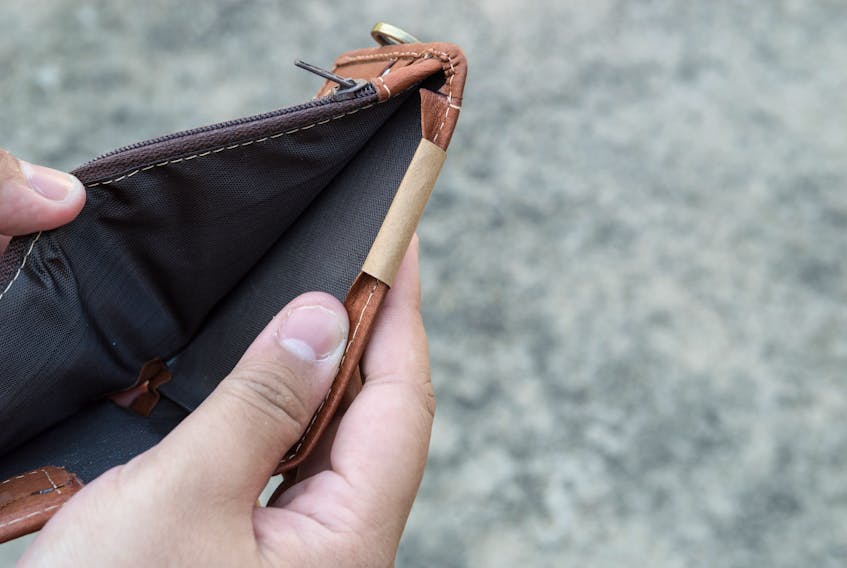EDITOR'S NOTE: For privacy reasons, a pseudonym has been used for the subject of this interview.
It's taken Jane five years to save enough money for a car down payment – a reality not unheard of for those living on income assistance.
Jane is a single mother living in Pictou County. She has two sons just entering their teenage years. The oldest is disabled and her youngest has learning disabilities.
Due to her oldest’s needs and immunocompromised status, she can’t work outside of the house, and she is currently homeschooling her children.
“There are a lot of barriers. It takes a lot of patience and it takes a lot of time to get around those barriers, and a lot of tight budgeting,” she says.
Budgeting on low-income, which Jane has been living on for a couple of years, means people have to determine what they need. Living paycheque to paycheque means there is little to no security if something were to happen.
Jane says a majority of the money that comes into her home goes toward food. That is why it took time to get a car.
“Having a vehicle is something people take for granted,” she says.
In the first few years living on income assistance, Jane says she would have to take a cab every time she needed groceries. There is no public transit where she lives and it is outside the food bank areas.
There is also a cost whenever her son needs a new wheelchair or equipment. She has heavily had to rely on support from the provincial government for that.
While she is grateful for that support, it only covers him so far. Plus as her children get older fewer things will be covered, things like dental.
She says she just wants them to be happy.
“I’m lucky, I brought my kids up to be thankful for what they have. A lot of kids in single-family homes, with single mothers, those children do not get to have the same things their friends have,” she says.
But she says this has made her children humble, they don’t expect a lot and they don’t ask for much. They often just ask for family time.
This reflects on Jane’s belief that not everything connected to living on income assistance is negative, because similarly she knows of good work being done.
“We are very fortunate to have good people in this community that volunteer their time and efforts,” she says.
In particular, she mentioned the Helping During the Coronavirus group led by Jim McKenna. Throughout the pandemic, the group has been able to make food bank deliveries to those who need it.
Jane herself has received support from strangers, people who have put their hearts into her household. She also has family and friend support.
But she knows that not everyone on income assistance is so lucky.
She says some single mothers don’t get child support like she does and come winter some families have to decide between food, electricity and heat.
“It breeds depression and it breeds mental health issues and it brings exhaustion. I know when we were at our lowest point, for a long time you just get into this flight or fight mentality it is just constant.”
She says being in poverty leaves a lingering feeling, a feeling of always waiting for the other shoe to drop.
“Even when you have money and everything is paid for, suddenly if you have no money and you have a week until you are paid, you almost get a PTSD like reaction in your chest. It is guttural. But then you remember you are all right,” Jane says.
Jane says she wasn’t planning on being on income assistance this long. She wasn't working after she had her oldest, so she was unable to build back her credit that had been wrecked by student loans.
She filed for bankruptcy and only then was able to start building back her credit. This past year she was going to upgrade her first aid and other credentials so she could go back to work, but then the pandemic hit.
She says due to the state of the economy in Pictou County, the loss of Northern Pulp and the pandemic, she is sure the number of people on income assistance has risen.
“There is this stigma in our area that most people on income assistance are just sitting there leeching off the system, getting money and using it for alcohol and all sorts of things. I am not saying that never happens, but the majority of us are doing the best we can.”









